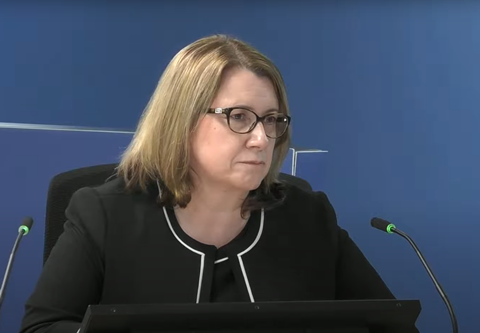‘Damning’ report found lessons had not been learned at testing house despite repeated criticisms from government appointed inspection body
The firm which carried out tests on cladding products used on the Grenfell tower had repeatedly been criticised by a review body in the years leading up to the 2017 fire, the Grenfell Inquiry has heard.
Monday’s hearing was shown a series of reports on the Building Research Establishment (BRE) by the United Kingdom Accreditation Service (UKAS), a government body which provides certification and inspection services in various sectors.
The inquiry heard that, since 2005, UKAS had uncovered “areas of weakness” at the BRE that did not meet international standards.

A report from 2012, five years before the fire which claimed 72 lives, concluded there was “serious concern” about some aspects of management control at the BRE.
The surveillance said that in most of the firm’s test centres, there had been no witnessed test audits in the preceding year, and that most of the few witnessed test audits had been planned without the quality manager’s knowledge and had not been reported to him.
It added that no corrective actions had been addressed in the previous year, and that “these concerns need to be urgently addressed for the laboratory to be compliant”.
A follow up report in 2013 said that the concerns raised the previous year were being addressed, with the quality assurance team having been expanded and a programme of audits was being implemented.
UKAS’s 2014 report said that there was a “culture of good commitment to quality apparent in the organisation which favourably contrasted with the concerns noted two years ago”. The quality team was making “good effort” to catch up with delayed audits, though the report noted that improvement actions were “not being addressed in a timely manner”.
But the following year, UKAS found that internal auditing had “fallen significantly behind” because of “resource issues”. It added that where audits had been completed, the follow up of problems which had been uncovered had “generally been too slow”.
Counsel to the inquiry Emma Hynes QC asked UKAS accreditation director Lorraine Turner if the report signified a “quite serious situation”. Turner replied: “Potentially, yes.”
Hynes asked: “If we look at the reviews together, just on this audit point, someone might say that a picture emerges that the BRE may not have quite got on top of internal audits, or at the very least there were periods where they definitely were not on top of their audits, and yet the overall course is that UKAS consistently found fundamental failings, raised improvement actions, but there was no absolute, fundamental addressing of the problem. Is that a fair picture?”
Turner replied: “I think that certainly appears to be the case, yes.”
In 2016, fire testing inspector Dan Patterson filed a report on the BRE’s fire testing practices as part of UKAS’ reassessment surveillance for that year.
He said that two BRE labs did not have standard operating procedures for “any of the testing carried out”. He said there were “no test or operating procedures for fire resistance testing equipment, test setup, data transfer, report writing or other key process relating to testing.
“There exists ad−hoc personalised ‘Simon’s test checklist ’ and ad−hoc ‘data transfer procedure’.”
Hynes asked if Patterson’s findings of the lack of consistent operating procedures meant that the BRE might have been performing tests inconsistently. Turner replied: “There is that possibility.”
UKAS carried out a special assessment on the BRE in 2021 after it emerged that insulation manufacturer Kingspan had been selling an insulation product for nearly 15 years on the basis of test results of a chemically different product.
Kingspan had withdrawn the 2005 test of its K15 insulation panels, which were used on Grenfell tower, in November 2020, admitting that it was “not representative” of the product which it had sold on the UK market from 2006.
Tests on the newer version of the product carried out by the BRE in 2007 had turned the test rig into a “raging inferno” which had to be extinguished out of fears that the laboratory would be damaged – but these tests had not been made public.
UKAS’ report last year found shortcomings at the BRE including a lack of equipment records, a lack of records and procedures to demonstrate that equipment is reviewed against appropriate criteria and appropriate training to staff on international standards.
“That is a fairly damning set of remarks, isn’t it?”, asked Hynes. Turner replied: “Yes, it is.”
The report pointed out that the issues found had been subject to repeated improvement actions by UKAS in the past.
Hynes said: “The conclusion was any corrective action has either not been effective or not implemented across the necessary business areas.
“Now, is that saying that the lessons from the past have not been learned by the BRE?”
Turner said: “I think that appears to be the case.”
The inquiry continues.




























No comments yet